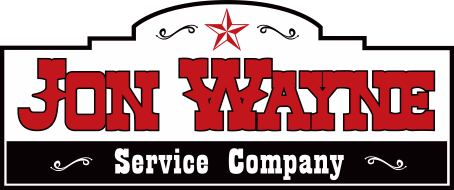How Long Do AC Units Last in Texas?

On average, most AC systems will last 15-20 years.
The three most important factors for determining how long an AC system will last are:
- Whether or not the AC was installed properly
- How often your AC is maintained
- How often your AC is cycling on to meet your needs
Below, we’ll discuss each of these factors and how they affect your AC’s lifespan.
Want a contractor you can trust for your AC installation? Contact Jon Wayne.
Factor #1: Was the AC installed properly
The most important day of an AC’s life is the day that it is installed. For homeowners to get the greatest return on their investment, they need to make sure the AC system is installed properly. This means hiring a company that will size the unit properly and not take any shortcuts while installing the AC unit.
For example, an AC system must be sized specifically for each home. If the AC is oversized it will meet your cooling needs—but it meets it much too quickly and then it shuts off. Constantly turning on and off can lead to a shortened lifespan for the AC.
Having an undersized AC means the system will constantly overwork itself to cool your home, which shortens its lifespan and decreases comfort.
To ensure your AC system is installed correctly be sure that:
- The company you hire performs a manual J-load calculation
- The equipment is installed by certified and trained technicians
- The equipment has adequate return
- The equipment is brand new
- The company you hire offers an upfront, flat-rate estimate so you aren’t surprised by your final bill
- The company you hire has been in business for 10+ years
- The company you hire is licensed and insured in the state of Texas
- The company you hire has good reviews on Google, Facebook and the Better Business Bureau
Factor #2: How often is your AC maintained
After installation, regular maintenance helps you avoid excess wear-and-tear on your AC system that could saddle you with costly breakdowns and repairs.
For example, while the compressor (an integral part of your AC) may be manufactured to last 15 years, if it’s not maintained, it’s going to wear out sooner. Since your system can’t run without a working compressor, you could wind up with a pricey repair or even an entire system replacement.
Another reason for keeping your AC maintained is to keep your manufacturer warranty valid. In order to redeem your warranty, major manufacturers are requiring homeowners to prove annual AC maintenance done by a licensed HVAC technician.
Factor #3: How often your AC is cycling on
When your thermostat is set to a much lower temperature than the outdoor air, your AC has to strain to meet your cooling needs. The more strain put on your AC, the shorter its lifespan.
The smaller the difference between your set thermostat temperature and the outdoor temperature, the less your AC will work—and the more money you will save. For example, to avoid strain, if the temperature outside is 100°+, set your thermostat closer to 80° than, say, 65°.
You could also increase your thermostat temperature whenever you’re asleep or out of the house (Energy.gov suggests by 7-10°F from your thermostat’s normal setting). This can help you save 10% on your energy bills and reduce strain on your AC.
Want to get the most out of your current AC system?
While there are many factors that will affect the lifespan of your AC system, the two most important factors that will help prolong the life of your AC are:
- Proper installation— We’ve been proudly serving San Antonio and the surrounding areas since the mid-1970s, which means we’ve got the experience and skill to size, design and install your new AC system.
- Regular maintenance with a professional—We also have one of the best AC maintenance plans around. Our maintenance plan members get priority scheduling, discounted repairs and loyalty credits. When you join our maintenance club, we’ll throw in a smart home upgrade.
*All prices shown are estimates and can vary depending on a variety of factors. For an accurate price for your project, call (210) 239-2892.
